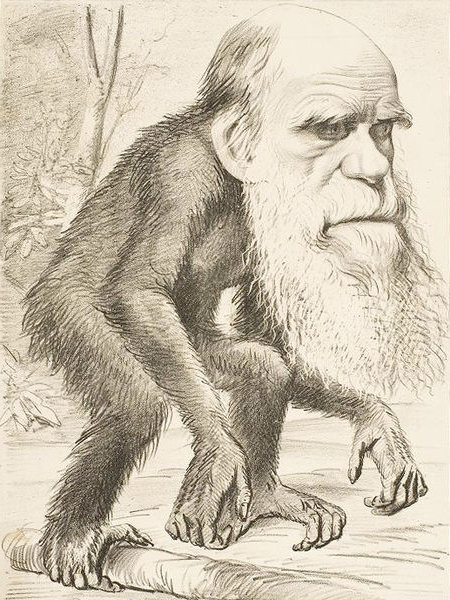In Search of Human Nature by Jay Knott (11/05/13) ⇌ (Darwinism)

In search of human nature - the decline and revival of Darwinism in American social thought.
Carl Degler, OUP 1991.
If you want the facts about the history of the influence of biology in the social sciences, Carl Degler's 1991 summary has a lot of them. The main problem I have with the book is its neutrality - it seems to give equal weight to almost any belief, except unpleasant ones, like the idea, once common, that there is a correlation between 'race' and what was called 'feeble-mindedness'. I prefer more opinionated books about biology and social science, such as Edward Wilson's recent "The Social Conquest of Earth" (Liveright books, 2013), because it means the author is putting his cards on the table, and asking for attempts at falsification. I'm about half-way through, and I may have out-Wilsoned Wilson - I think I've become more "reductionist" than he is! If so, I've probably gone too far.
Back to Degler. His book does at least conclude as its title promises - Darwin's theory of evolution is making a comeback in the study of human beings.
After a long rambling discussion about Franz Boas and a similar defender of the prominence of the social as against crude biological determinism, Alfred Krieber, Degler cites a more extreme environmentalist named Robert Lowie, who wrote, in 1917,
"Culture is a thing sui generis, which can be explained only in terms of itself."
He added, somewhat defensively, "This is not mysticism, but sound scientific method."
It's not mysticism, but it is illogical: it's circular. It's definitely not scientific, yet it has been influential in social science ever since.
Degler makes clear that there were just as many different views of the implications of Darwinism for the social sciences in the early 20th century as there are now. But there was more freedom to express them. There were people who argued there are innate differences between the races in intelligence, and those who argued there aren't. There were men who argued that women are not as able as men, and others who claimed that women are superior because they cooperate better. There was an academic left, defending cultural relativism because they thought it would undermine the oppression of black Americans. There were feminists, including extreme ones.
But no faction dominated - there was a debate. Today, there is less academic freedom - academics are told that they cannot teach students about a relationship between race and intelligence. No less a figure than James Watson, the co-discoverer of the structure of DNA, was fired because he did just that. Edward Wilson was physically attacked for his Darwinist views. Degler doesn't account for the success left-wing anti-Darwinism in 20th century social science - he writes as if the debate just continued as it started.
On page 167, Degler makes a good point: intelligence is difficult to define. Apart from that, he mostly goes on and on, with no hypothesis in mind other than saying that sometimes the social sciences took notice of biology, and other times, they did not.
Examples of social science which isn't science include cultural and structuralist anthropology, and the work of Freud. All of these Degler takes seriously. We can do better.
Chapter 10, on the incest taboo, is when the book first begins to liven up. Degler is too polite to say so, but Freud, Levi-Strauss, and various other giants of the social 'sciences' were as wrong as they could be. Incest avoidance exists among animals, and requires no special 'cultural' explanation among human beings.
I first learned about sociobiology while attending classes taught by Chris Knight. His "Blood Relations" (Yale 1995) argues that the almost-universal meme among humans for avoiding sex with near relatives is the result of a complex history of myths about the connection between hunting and menstruation.
Knight gives Darwinism a 'revolutionary role' in laying the ground for his mix of feminism, Marxism, structural anthropology, and science. But if it turns out the taboo is genetic, all the cultural aspects of the theory are unnecessary - the scientific method always selects the most parsimonious explanation.
Another example of the more economical approach is: explaining fatherhood. A persistent mistake among social scientists, which Degler refers to several times, can be paraphrased like this: "Among all the primate species bar one, fathers don't care for their offspring, because it's not in their genes' interests. Therefore, fatherhood among humans must be constructed."
This is a non sequitur - the fact that most species in an order don't have a trait, and one species does, doesn't mean that that species had to "socially construct" that trait. The survival of the expression of the maternal instinct in men can be more elegantly explained as a product of random mutation in a situation - currently unknown - where it was adaptive.
Hence, as with the incest taboo, there is no need for a complicated 'cultural' explanation of fatherhood.
The chief adversary of Darwinism in the nineteenth century was the religious right. In the twentieth, it was the academic left. But this will be Darwin's century.